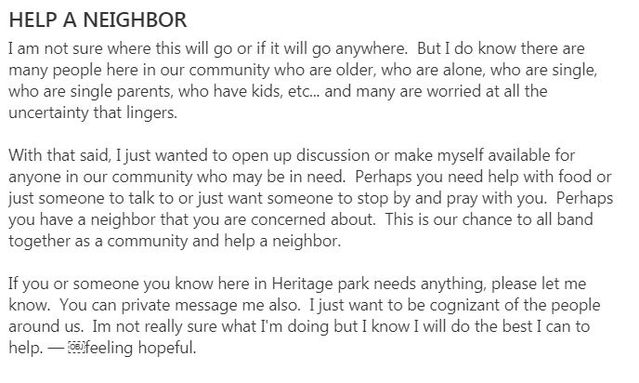Stress
Let's Not Make Public Shaming Part of Social Distancing
Use social media to help, not harm each other during these stressful times.
Posted March 18, 2020 Reviewed by Gary Drevitch

These are not normal times we're living in.
When dealing with extreme weather situations, such as preparing for hurricanes, it's typically limited to certain areas of the country. However, COVID-19 is global.
The toilet paper crisis
Initially, many of us were scratching our heads: Why the urgency to buy toilet paper? There's nothing wrong with questioning this; I personally didn't understand it at first, but I also ran out to purchase it.
Going to any store, you would notice people clearing the shelves of not only toilet paper but other important items, such as hand sanitizer and bleach. Understandably, many parents and especially elderly people are concerned for safety and the ability to stay healthy in these unprecedented times.
What's not acceptable is the rise of rudeness and social shaming we are experiencing both online and offline.
Let's begin with the toilet paper.
My family is probably different than yours. Your family is likely different than your neighbors. Sadly we may never stop judging each other, but when you do this publicly and without knowing someone's story, it's not only hurtful, but it can actually escalate into more cruelty.
One mom with a family of 16 was accused of hoarding toilet paper in a grocery check-out line while trying to stock her home for this situation. After being humiliated by a shopper behind her for the quantity of toilet paper she was buying, this mother clapped back on Facebook: "That's a worldwide lack of good manners with a symptom of unkindness that seems to accompany it."
Social distancing doesn't condone social shaming
As we witness restaurants, bars, schools, retail stores, and many small businesses closing, this means that people will be out of work. It's going to be a hardship on many families as well as individuals. The last thing they need is to find out they have been socially and publicly shamed online.
If you are someone who is quick to judge others for their behavior—maybe they are in a bar or any public area where you believe they shouldn't be, and you are going to publicly shame them digitally—take the time to reconsider. Maybe they have a reason to be there or maybe it's none of your business.
Please remember when things go viral, it can impact a person's future. Their ability to get a job could be jeopardized or the job they have could be at risk.
It's not about condoning bad behavior; it's about being compassionate and empathetic to other people's needs, and understanding what they might be going through, especially if we don't know them or the reason they are doing what you deem is wrong.
Living in an aim-and-shame society
Maybe a person is in a public place such as a bar (though people are being told to stay home) waiting to pick up food? Maybe they are delivering supplies to the establishment. Could someone have been hired to fix a broken pipe? A person doing a good deed could potentially be cyber-shamed because someone was quick to make a rash judgment, thinking they were saving the world.
This was actually posted on a comment section of a recent article:
I will show up and video them and post it online and shame them and destroy their reputations forever. The internet never forgives and the internet never forgets.
Like people who need to buy larger quantities at stores, let's be slow to judge and take time to consider before we use our keypads as weapons.
Start NextDoor
Social distancing can also bring out kindness. This was posted on our local NextDoor app. Instead of finding ways to hurt or harm others, find ways to help them during these uncertain times.



